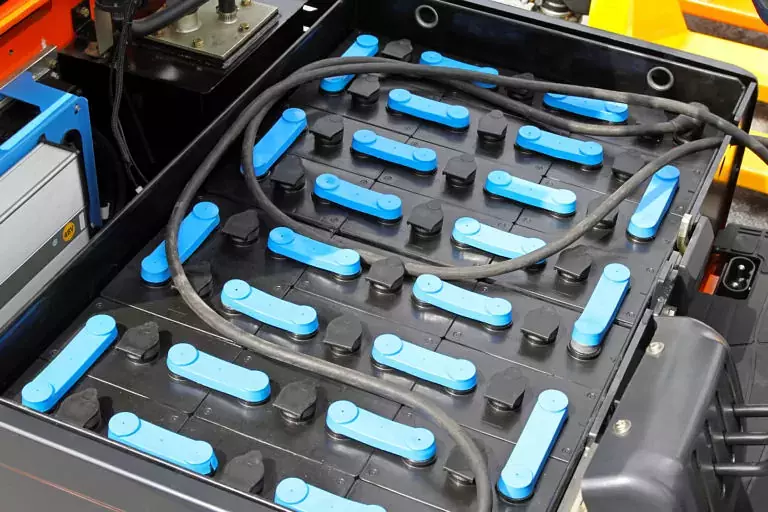 With material handling applications progressing through the 21st century, the forklift of tomorrow has become a thing of today. Forklifts are no longer fuel-fed devices that require oil and antifreeze to operate. No, forklifts have evolved and now many warehouses and facilities use fully-electric and/or hybrid appliances to facilitate their daily operations and initiatives. With this being established, there are several leading battery option alternatives that have emerged in the modern market. The two that have charged to the forefront are hydrogen fuel cells and lithium ion batteries. Both offer a host of benefits for those who partake in their abilities. Here is a breakdown on both:
With material handling applications progressing through the 21st century, the forklift of tomorrow has become a thing of today. Forklifts are no longer fuel-fed devices that require oil and antifreeze to operate. No, forklifts have evolved and now many warehouses and facilities use fully-electric and/or hybrid appliances to facilitate their daily operations and initiatives. With this being established, there are several leading battery option alternatives that have emerged in the modern market. The two that have charged to the forefront are hydrogen fuel cells and lithium ion batteries. Both offer a host of benefits for those who partake in their abilities. Here is a breakdown on both:
1) Hydrogen Fuel Cells – According to Adaptalift, increased productivity is a huge selling point of hydrogen fuel cells, because they limit downtime. Most electric battery forklifts require the battery to be changed once they run out of power. Operators have two choices: either wait to re-charge the appliance or swap out the batteries, either of which can take up to 30 minutes, depending on the battery size and/or re-charging port. Over the span of a full work day, this downtime can add up if the forklift requires multiple charges or changes. As batteries age, their longevity shrinks and thus the forklift may actually find itself out of commission for over an hour per day on the regular as a result of a weakened traditional battery. Hydrogen fuel cells afford owners a bit more flexibility and a lot less downtime. This is because hydrogen powered forklifts can be fully re-charged in under 5 minutes in the same capacity as internal combustion forklifts. The key difference is that hydrogen fuel cells are far more eco-friendly and much cheaper compared to gasoline and petroleum products that are typically used to fuel forklift appliances and accessories. Furthermore, hydrogen fuel cells reduce disposal costs and also slash renewal costs and influences. Undoubtedly, this is one of the up and coming trends in material handling operations.
2) Lithium Ion Cells – Lithium ion cells have made a name for themselves in the consumer and healthcare world for their renowned longevity and ability to be re-charged at an expeditious rate. Now these remarkable power sources have made their way into the material handling game. According to Yahoo!, Electrovaya, Inc. has produced a battery that is able to generate enough power for one machine to last for three shifts, six days per week. This is an absolutely groundbreaking and remarkable achievement in comparison to what we have observed with typical sources. Electrovaya’s battery is known to drive productivity, lower maintenance costs, allow peak power shifting to minimize peak demand, and decrease electricity usage in heavy distribution and manufacturing settings. The best part is that these lithium ion cells can simply be implemented and dropped into any forklift. Due to their sustainability, lithium ion cells have emerged as a trendy green technology and will assuredly make their way to the front of the pack as they become mass-produced and replicated.
